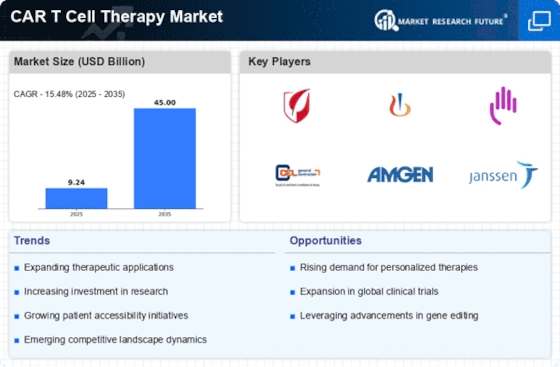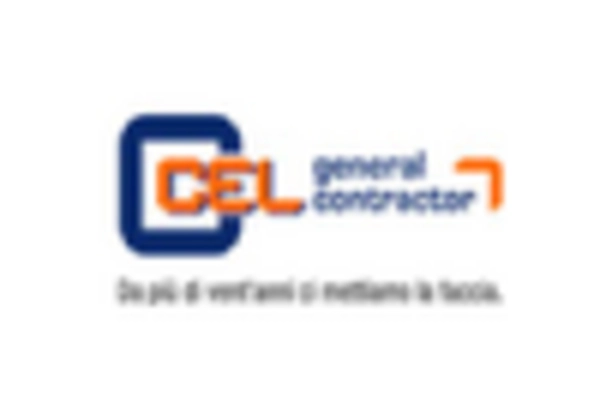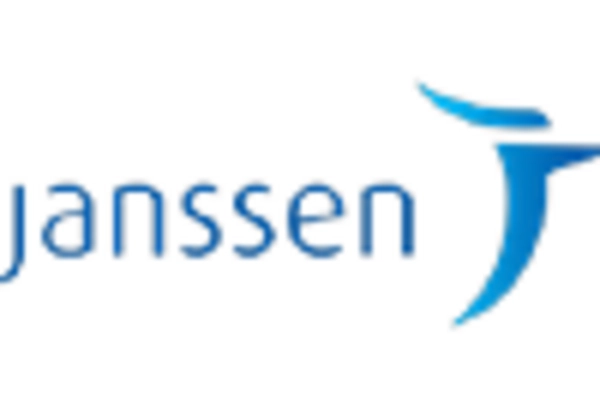Market Analysis
In-depth Analysis of CAR T Cell Therapy Market Industry Landscape
Exploring the Frontiers: Investigating CAR-T Therapy's Potential Across Hematologic and Solid Tumor Types
In the dynamic landscape of cancer treatment, Chimeric Antigen Receptor T-cell (CAR-T) therapy has emerged as a promising frontier, extending its reach beyond B cell lymphoma and Acute Lymphoblastic Leukemia (ALL). The spotlight is now on the investigation of CAR-T therapy for treating diverse malignancies, including pancreatic cancer. This exploration is not confined to a specific region but spans multiple countries engaged in extensive clinical trials. As pharmaceutical giants like Pfizer, Inc., Kite Pharma, and others spearhead the development of CAR-T therapies, a myriad of opportunities is unveiled for the market's growth.
Pancreatic Cancer: A Target for CAR-T Therapy
Pancreatic cancer, known for its aggressive nature and limited treatment options, is now under the scrutiny of CAR-T therapy. Clinical trials are underway globally, with a focus on the US, Canada, UK, France, Germany, China, Australia, Austria, Belgium, Russia, Israel, Singapore, Italy, Japan, Netherlands, Norway, Spain, Sweden, Switzerland, Thailand, and more. The intention is clear – to assess the efficacy of CAR-T therapy in combating pancreatic cancer and potentially revolutionize its treatment landscape.
Pivotal Players in CAR-T Therapy Development
Key players in the pharmaceutical realm, including Pfizer, Inc. and Kite Pharma, are at the forefront of developing CAR-T therapy-based products. Among these, Pfizer's UCART19, a Phase I pipeline product, and Kite Pharma's KTE-C19, a Phase II pipeline product, underscore the commitment to advancing CAR-T therapies. These initiatives transcend geographical boundaries, emphasizing a global collaborative effort to harness the full potential of CAR-T therapy.
Diversified Applications Unleash Market Opportunities
The exploration and diversified application of CAR-T therapy represent a beacon of opportunities for market growth. Beyond traditional realms, CAR-T therapy's adaptability is being tested across various tumor types. As clinical trials progress and demonstrate positive outcomes, the market stands poised for unprecedented expansion.
Global Clinical Trials: A Glimpse into CAR-T Therapy's Reach
Clinical trials serve as a litmus test for the viability and effectiveness of CAR-T therapy in diverse cancer types. From North America to Europe, Asia-Pacific, and beyond, the global clinical landscape is witnessing a surge in trials, reflecting the industry's commitment to pushing the boundaries of cancer treatment.
Market Dynamics: Navigating the Landscape of Possibilities
The investigation into CAR-T therapy for hematologic and solid tumor types has profound implications for market dynamics. The interplay between pharmaceutical innovation, clinical trial outcomes, and global market trends sets the stage for transformative shifts. The development of CAR-T therapies is not just a scientific endeavor; it is a strategic response to the evolving needs of cancer patients worldwide.
Unveiling Opportunities: The Growth Trajectory
As clinical investigations unfold and companies forge ahead with product development, the market trajectory is poised for significant growth. The potential applications of CAR-T therapy across a spectrum of cancers underscore its versatility and adaptability. The opportunities are not confined to a single segment but span the entire ecosystem, from research and development to commercialization.
Conclusion: Nurturing a Paradigm Shift in Cancer Treatment
In conclusion, the investigation of CAR-T therapy for hematologic and solid tumor types signifies a paradigm shift in cancer treatment. The relentless pursuit of solutions for pancreatic cancer and other malignancies reflects the industry's commitment to pushing the boundaries of what is possible. As clinical trials progress and innovations unfold, the market is set to undergo transformative growth, offering new hope and possibilities for cancer patients globally. The collaborative efforts of pharmaceutical leaders and researchers across the world are steering us towards a future where CAR-T therapy emerges as a cornerstone in the evolving landscape of cancer care.


















Leave a Comment